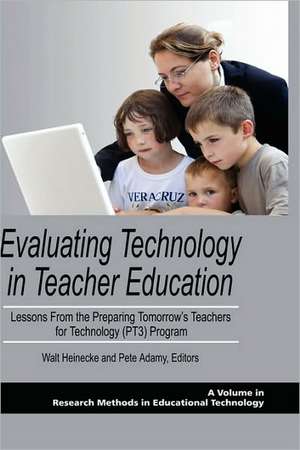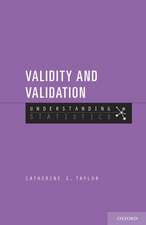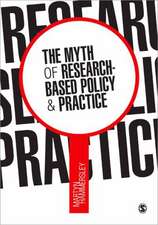Evaluating Technology in Teacher Education: Research Methods in Educational Technology
Editat de Pete Adamy, Walt Heineckeen Limba Engleză Hardback – 17 mai 2010
| Toate formatele și edițiile | Preț | Express |
|---|---|---|
| Paperback (1) | 392.07 lei 6-8 săpt. | |
| Information Age Publishing – 17 mai 2010 | 392.07 lei 6-8 săpt. | |
| Hardback (1) | 588.43 lei 6-8 săpt. | |
| Information Age Publishing – 17 mai 2010 | 588.43 lei 6-8 săpt. |
Preț: 588.43 lei
Preț vechi: 692.28 lei
-15% Nou
Puncte Express: 883
Preț estimativ în valută:
112.60€ • 122.69$ • 94.88£
112.60€ • 122.69$ • 94.88£
Carte tipărită la comandă
Livrare economică 23 aprilie-07 mai
Preluare comenzi: 021 569.72.76
Specificații
ISBN-13: 9781607521358
ISBN-10: 1607521350
Pagini: 288
Dimensiuni: 156 x 234 x 18 mm
Greutate: 0.58 kg
Ediția:New.
Editura: Information Age Publishing
Seria Research Methods in Educational Technology
ISBN-10: 1607521350
Pagini: 288
Dimensiuni: 156 x 234 x 18 mm
Greutate: 0.58 kg
Ediția:New.
Editura: Information Age Publishing
Seria Research Methods in Educational Technology














